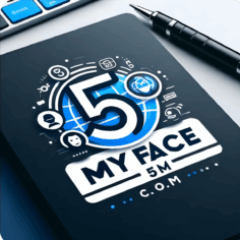What Is My Facebook URL?
A Small Business Owner’s Guide to Branding with Facebook
Your tiny business doesn’t have to be a secret anymore. With the right strategy, you can compete with big-name companies by focusing on a niche and building strong brand visibility—especially through your Facebook URL.
Instead of trying to win attention in overcrowded spaces, small businesses should concentrate on video content, branded experiences, and smart linking strategies.
What We’ll Cover:
What is a Facebook URL for business?
Why securing your custom URL matters
How external links affect your visibility
Using your Facebook URL as a branding channel
1. What Is a Facebook URL for Business?
Your Facebook URL is the direct web address to your profile or page. For example:
Having a clean, memorable Facebook URL boosts your visibility and credibility. Facebook has made it easier than ever to build a URL business page—complete with a shop, inbox, posts, and more.
✅ Tip: Create your Facebook Page and claim a branded URL early to secure your business name.
2. Go Niche with Your Content Strategy
To stand out in social media, go deep—not wide. Viral marketing works best when you target a specific audience. Focus your Facebook content on a narrow demographic to speak directly to your ideal customer. Think of it as spear-fishing rather than casting a net.
Whether your niche is fitness gear, pet toys, or music gear—build branded content around that vertical and align it with your Facebook page strategy.
3. Setting Up a Passive Income Brand on Facebook
By 2023, the process of building a branded Facebook store became incredibly streamlined. In fact, you can:
Create a Facebook Page
Add a shop tab or service offering
Post your digital products or services
Link to payment processors or landing pages
You can do this in under 24 hours. If you have a small team, even faster. Facebook can become a passive income channel with the right setup.
4. External Links: Be Smart with Posting
One of the tradeoffs of using social media platforms like Facebook is the limited reach of posts with external links. Like Instagram, Facebook prefers native content. That means posts with outbound URLs (like to your blog or store) might get less visibility.
To work around this:
Post your external links in the comments
Embed them behind a CTA button on your shop page
Use shortened or branded links with clear CTAs
5. Securing Your Facebook URL with HTTPS
When building a brand online, make sure your Facebook page is using HTTPS, not just HTTP. Facebook handles this automatically, but any links you share from your website should also be SSL secured.
This ensures:
Data is encrypted and secure
Google recognizes your brand as trustworthy
You reduce the risk of being flagged or penalized
6. Using Your Facebook URL as a Media Channel
Today, your Facebook URL can act as a standalone social media hub. Hosted on your personal or business account, your page lets you:
Share updates and livestreams
Display your products or services
Post photos and highlights
Offer exclusive or “secret” content with visibility settings
You can even customize your cover photo, build a following, and monitor engagement—all from one central link.
Claim and Use Your Facebook URL
If you’re building a brand or small business, don’t overlook the power of your Facebook URL. It’s more than just a link—it’s a branding asset. With a clear niche, focused content strategy, and smart use of the Facebook ecosystem, your page can become a profitable channel in your marketing toolkit.


